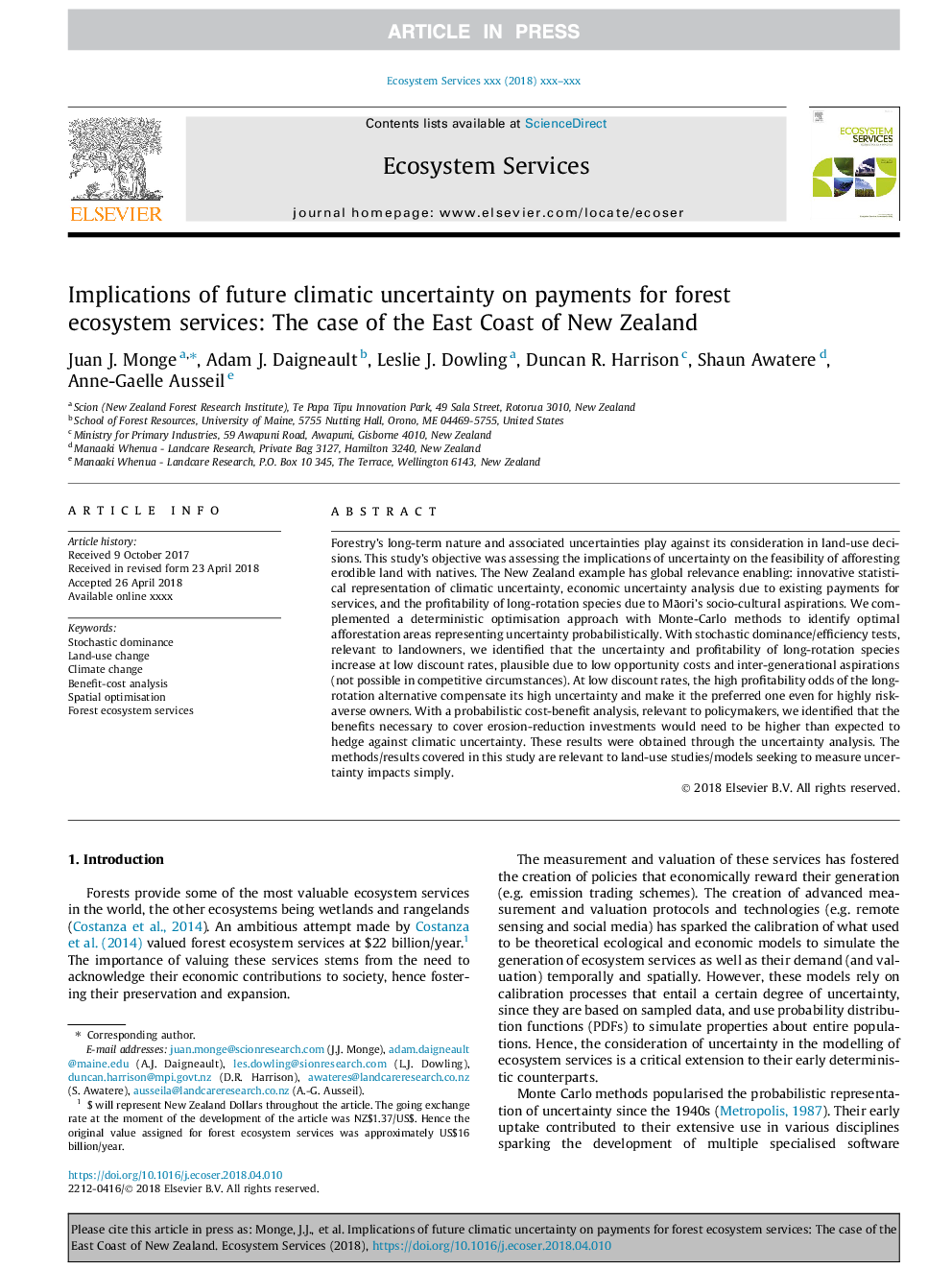| Article ID | Journal | Published Year | Pages | File Type |
|---|---|---|---|---|
| 11012794 | Ecosystem Services | 2018 | 14 Pages |
Abstract
Forestry's long-term nature and associated uncertainties play against its consideration in land-use decisions. This study's objective was assessing the implications of uncertainty on the feasibility of afforesting erodible land with natives. The New Zealand example has global relevance enabling: innovative statistical representation of climatic uncertainty, economic uncertainty analysis due to existing payments for services, and the profitability of long-rotation species due to MÄori's socio-cultural aspirations. We complemented a deterministic optimisation approach with Monte-Carlo methods to identify optimal afforestation areas representing uncertainty probabilistically. With stochastic dominance/efficiency tests, relevant to landowners, we identified that the uncertainty and profitability of long-rotation species increase at low discount rates, plausible due to low opportunity costs and inter-generational aspirations (not possible in competitive circumstances). At low discount rates, the high profitability odds of the long-rotation alternative compensate its high uncertainty and make it the preferred one even for highly risk-averse owners. With a probabilistic cost-benefit analysis, relevant to policymakers, we identified that the benefits necessary to cover erosion-reduction investments would need to be higher than expected to hedge against climatic uncertainty. These results were obtained through the uncertainty analysis. The methods/results covered in this study are relevant to land-use studies/models seeking to measure uncertainty impacts simply.
Keywords
Related Topics
Life Sciences
Agricultural and Biological Sciences
Agricultural and Biological Sciences (General)
Authors
Juan J. Monge, Adam J. Daigneault, Leslie J. Dowling, Duncan R. Harrison, Shaun Awatere, Anne-Gaelle Ausseil,
